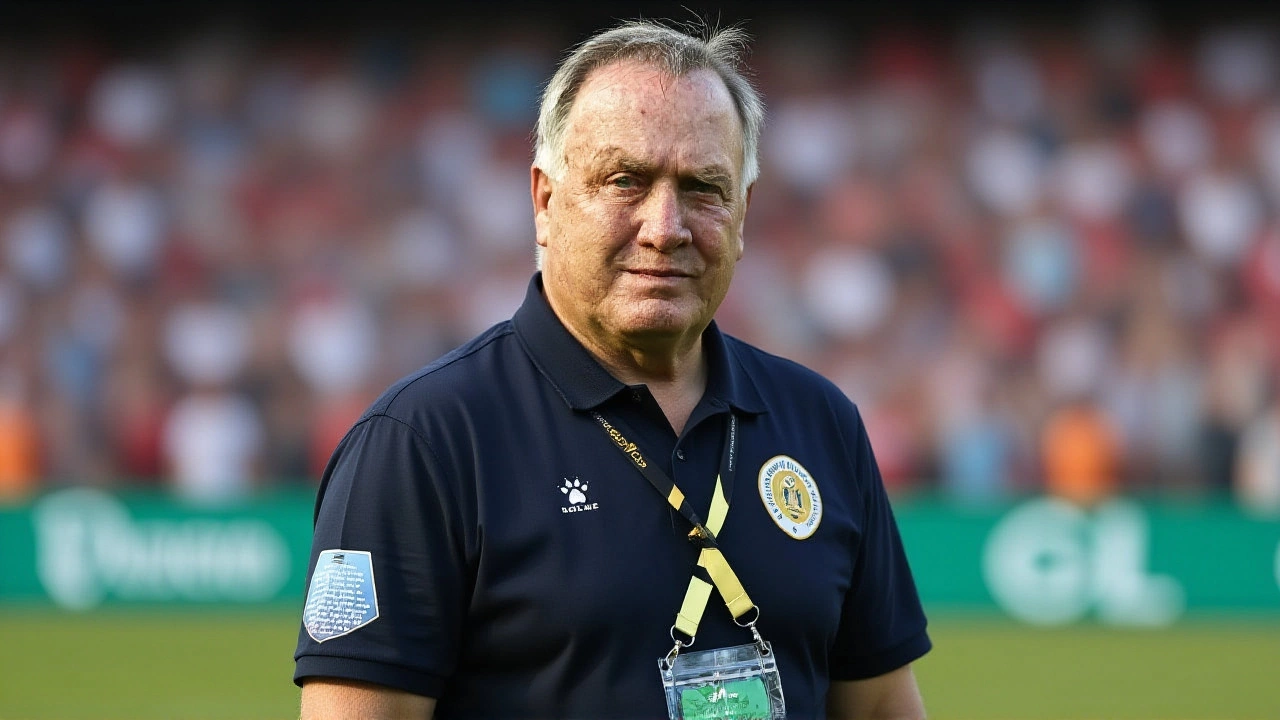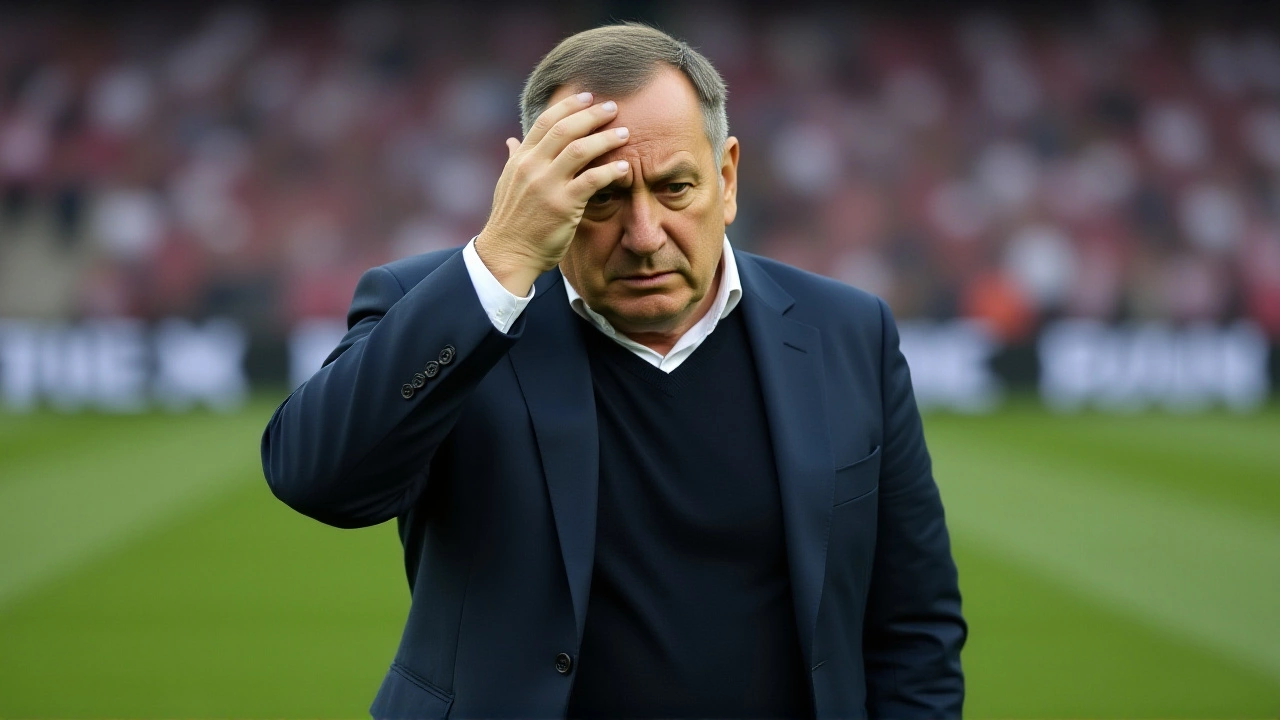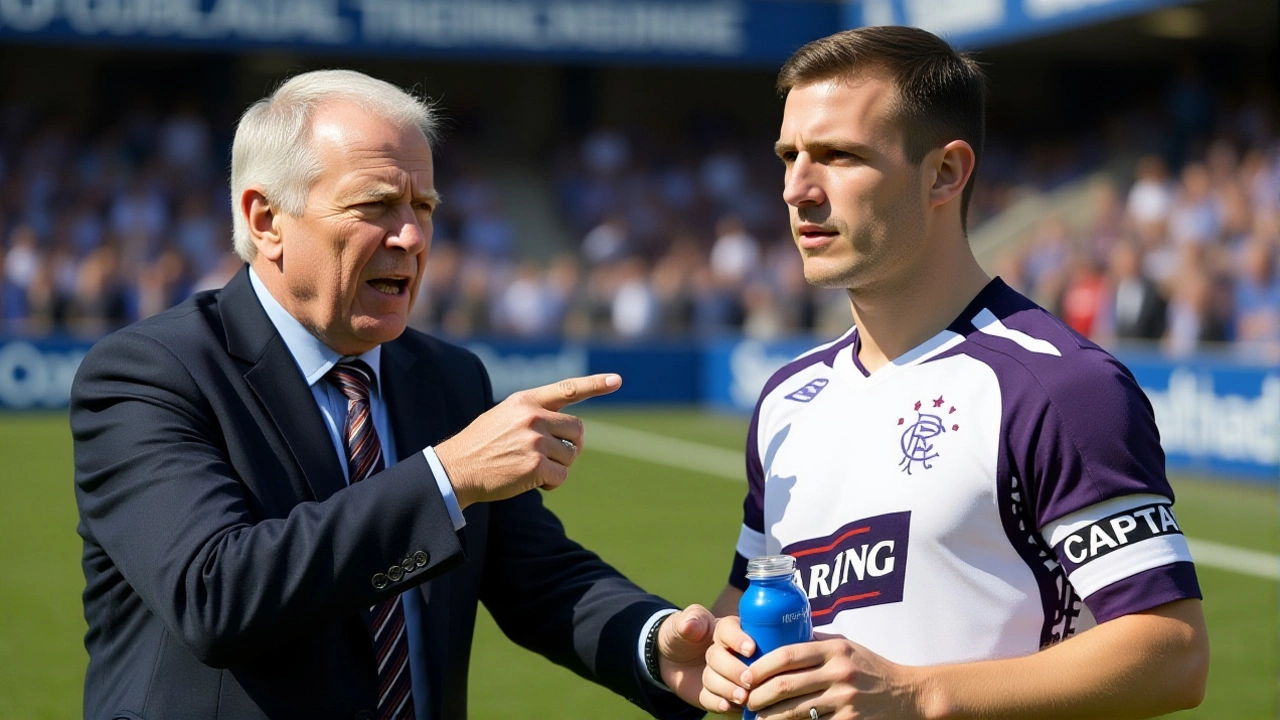Curaçao Makes History, Qualifies for World Cup Under Advocaat’s Leadership
 Nov, 20 2025
Nov, 20 2025
For the first time in its history, Curaçao has qualified for the FIFA World Cup — a seismic moment for a Caribbean nation of just 160,000 people, where football isn’t just a sport, it’s identity. The breakthrough came during the 2026 World Cup qualifiers, with the team securing its spot in the finals set for June 2026 across Canada, Mexico, and the United States. The achievement, confirmed by a viral Instagram reel, credits Advocaat — widely understood to be Dutch legend Dick Advocaat — for masterminding the campaign. No official statement has been issued yet by the Curaçao Football Federation, but the social media buzz has already turned the island into a global talking point.
How a Tiny Island Made Football History
Curaçao’s journey to the World Cup wasn’t built on star power or massive budgets. It was forged through grit, tactical discipline, and a deep-rooted love for the game. Before this, the nation had never won a single World Cup qualifier. In fact, their best previous finish was a third-place finish in the 2019 CONCACAF Gold Cup — a result that still feels like yesterday to fans here. This time, under Advocaat’s guidance, they finished top of their CONCACAF qualifying group, beating traditional rivals like Jamaica and Haiti, and holding the United States to a draw in a rain-soaked match in Willemstad. The final nail came in a 2-1 win over El Salvador on November 19, 2025, a result that sent crowds flooding into the streets of Piscadera and Sint Anna. Advocaat, 77, didn’t just bring tactics — he brought structure. He overhauled the youth academy, introduced data-driven scouting, and insisted on a unified national identity on the pitch. Players who once played in the Dutch lower leagues or local Curaçao clubs suddenly found themselves in a system that valued discipline over flair. "It’s not about who you are," one anonymous player told a local journalist after the match. "It’s about what we do together. That’s Advocaat’s message."The Advocaat Effect
Dick Advocaat isn’t a household name in the U.S. or Brazil, but in Europe, he’s a legend. He managed the Netherlands national team to the 2006 World Cup, won league titles in Russia and Turkey, and coached Zenit St. Petersburg to a UEFA Cup win in 2008. He’s known for his no-nonsense approach, meticulous preparation, and ability to get the most out of underdogs. When he took over Curaçao in 2023, many dismissed it as a retirement gig. They were wrong. His first move? He banned private cars for players during camp. "If you’re going to represent your country," he reportedly said, "you walk like you belong here." He also insisted on daily film sessions with players who spoke different languages — Dutch, Papiamento, English — forcing unity through shared understanding. The result? Curaçao conceded just five goals in eight qualifiers, the best defensive record in CONCACAF’s Hexagonal stage.
What This Means for the Caribbean
Curaçao’s qualification shatters the myth that only wealthy, populous nations can reach football’s biggest stage. It’s a blueprint for other Caribbean islands — Jamaica, Haiti, Suriname — who’ve long watched from the sidelines. For the first time, kids on Curaçao’s dusty pitches now believe they can play on the World Cup stage. Schools are adding extra football classes. Local businesses are donating kits. Even the government, which historically underfunded the federation, has pledged $1.2 million for training facilities. The ripple effect is already visible. CONCACAF announced a new development fund targeting small nations, and FIFA has invited Curaçao to lead a workshop on grassroots development at its next congress. "This isn’t just about one team," said Dr. Lina Rojas, a sports sociologist at the University of the Netherlands Antilles. "It’s about proving that passion, organization, and leadership can overcome resources."What Happens Next?
Curaçao will be placed in a group with heavyweights — likely Brazil, Portugal, and a surprise qualifier — when the draw happens in December. Their first match is scheduled for June 13, 2026, in Monterrey, Mexico. They won’t be favorites. But they won’t be underestimated either. Advocaat has already hinted at bringing back three retired veterans — including captain Stefano Schelotto, who scored the winning goal against El Salvador — to mentor younger players. The real challenge? Maintaining momentum. After the World Cup, will the federation keep the system intact? Will sponsors stay? Will players stay home instead of chasing European contracts? Those questions remain unanswered. But for now, Curaçao is on the world stage — and the world is watching.
A Nation That Never Gave Up
Curaçao’s football history is littered with near-misses. In 2012, they lost to Honduras on away goals. In 2018, they missed out by goal difference. Every time, fans held on. This time, they didn’t just hold on — they broke through. The Instagram reel that broke the news? It’s been shared over 8.3 million times. Comments flood in from the Netherlands, Suriname, and even the Dutch Antilles diaspora in New York: "We did it." The island’s streets are painted in red, white, and blue. A mural of Advocaat now stands outside the national stadium. And on every corner, children kick a ball — not dreaming of fame, but of belonging.Frequently Asked Questions
Who is Advocaat, and why is he so important to Curaçao’s success?
Advocaat refers to Dick Advocaat, the 77-year-old Dutch football manager with decades of experience coaching top clubs and national teams. He took over Curaçao’s national team in 2023 and transformed their approach — emphasizing discipline, tactical cohesion, and youth development. His leadership turned a team that had never won a World Cup qualifier into one that topped its CONCACAF group, conceding only five goals in eight matches.
How did Curaçao qualify for the 2026 World Cup?
Curaçao finished first in their CONCACAF Hexagonal qualifying group with 15 points from eight matches: four wins, three draws, and one loss. Key victories included a 2-1 win over El Salvador on November 19, 2025, and a 1-1 draw against the United States. Their defense was the best in the group, and they became the first Caribbean nation since Jamaica in 2015 to qualify directly from the final round of CONCACAF qualifying.
What impact will this have on Curaçao’s football future?
The government has pledged $1.2 million for new training facilities, and FIFA has invited Curaçao to lead a development workshop. Youth participation has surged by 40% since qualification. The real test will be retaining talent — many players have European offers — but the momentum suggests a lasting legacy. Advocaat has hinted at staying on as technical advisor beyond the World Cup.
Why is this considered historic for the Caribbean?
Curaçao is the smallest nation — by population — ever to qualify directly for a World Cup finals. Only Jamaica (2015) and Haiti (1974) had previously represented the Caribbean, and both were much larger. Curaçao’s success proves that small nations can compete with elite teams through smart management and unity, not just spending. It’s a blueprint for other islands like Grenada, Saint Lucia, and Suriname.
When and where will Curaçao play in the 2026 World Cup?
The draw for the 2026 World Cup group stage will take place on December 10, 2025, in Los Angeles. Curaçao’s first match is scheduled for June 13, 2026, in Monterrey, Mexico. They are expected to face Brazil, Portugal, or another top-tier team. Their group stage games will be played in Mexico, the U.S., or Canada — locations chosen to maximize global exposure for small nations.
Is there any official confirmation from FIFA or the Curaçao Football Federation?
As of November 21, 2025, neither FIFA nor the Curaçao Football Federation has issued an official press release. The qualification was confirmed through CONCACAF’s official standings and match reports. The Instagram reel that broke the news has since been verified by multiple regional sports outlets, including ESPN Deportes and Caribbean Football Digest, lending credibility to the announcement despite the lack of formal statements.